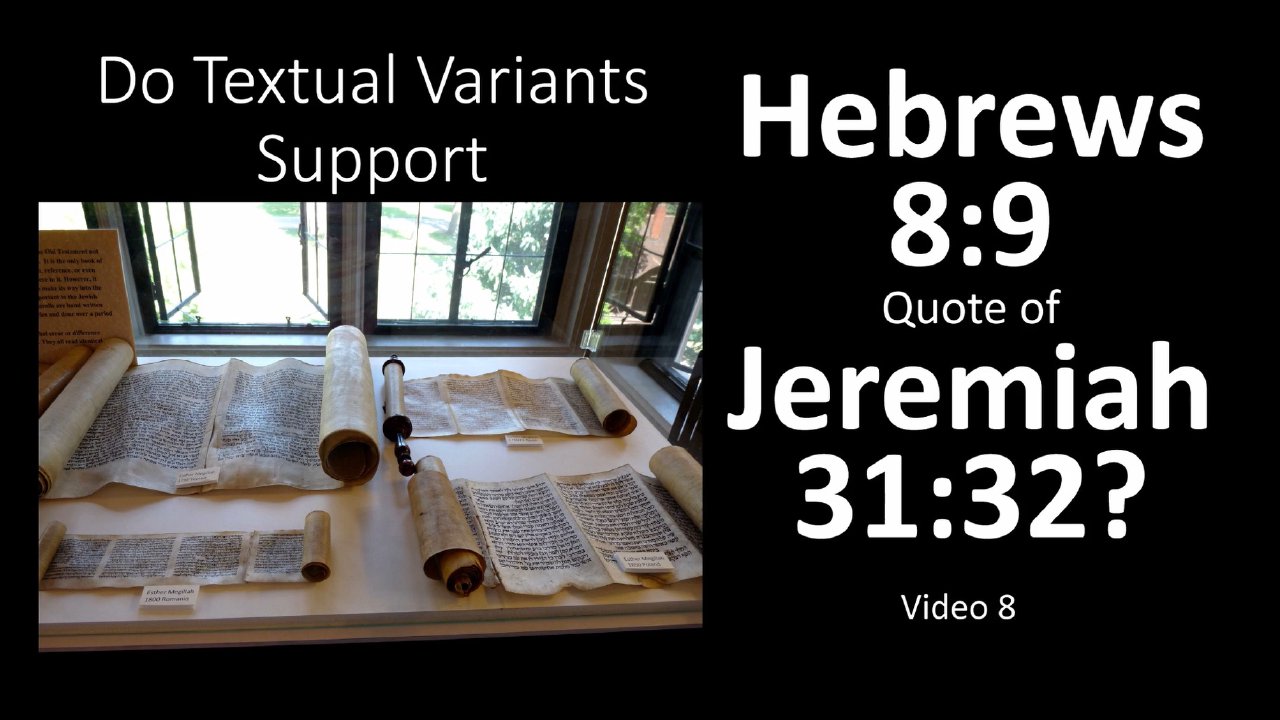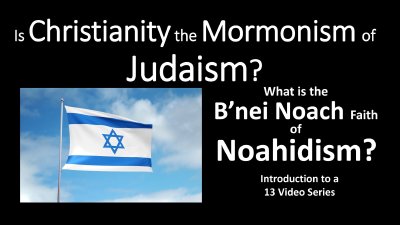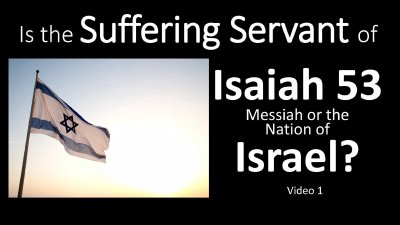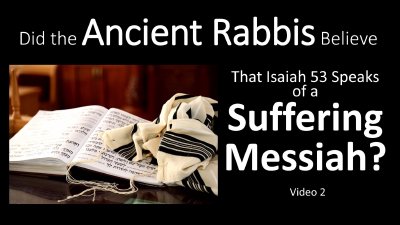At Hebrews 8:9, we read a discussion of the New Covenant found at Jeremiah 31:32. Although the majority of Hebrew's Greek citation of Jeremiah's New Covenant follows the text of the Jewish Bible's rendering of the passage, notable differences arise when the Hebrew word ba‘altî for "husband" is translated as ēmelēsa for "disregarded" or "I did not care for" them in the Hebrews 8:9 quote of Jeremiah 31:32. Consulting the Greek Septuagint, we find the same Greek word ēmelēsa contained within its text of Jeremiah. Thus, scholars assume that this reading found in the New Testament is based upon the Jewish Greek Septuagint's rendering of the passage as many other unique citations from the Old Testament bear striking resemblance to the Septuagint's influence as the primary Bible of the early Christian Church. Yet, Jewish rabbis disagree that this passage has any support in textual variants of the Old Testament manuscripts. In this video, we will examine their claims in light of the textual diversity found in the translations of this passage that support the Hebrew 8:9 quotation of this passage.

08 Do Textual Variants Support Heb. 8:9 Quote of Jer. 31:32?
Was God a "Husband" to Israel or Did He "Not Care" for Israel?
Christina R Darlington






